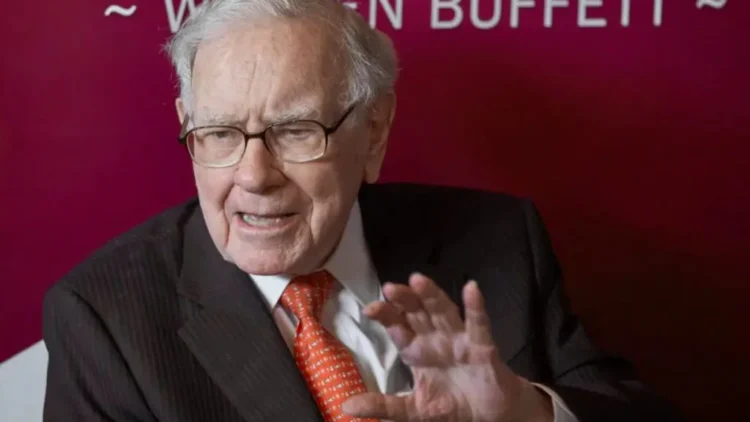Publisher: Maaal International Media Company
License: 465734
This is Warren Buffett’s advice for dealing with stock market volatility
اقرأ المزيد
Stock prices are experiencing a sharp decline after US President Donald Trump announced a comprehensive tariff of at least 10% on all US trading partners, with higher increases for countries with which Washington has trade deficits.
Investors and economists alike fear that Trump’s tariff policies will ignite a trade war with major trading partners, which could raise inflation and push the US economy toward a slowdown. If a recession approaches, markets could experience a massive sell-off.
According to CNBC, over the years, the Sage of Omaha, Warren Buffett, chairman of Berkshire Hathaway and one of the greatest investors in history, has emphasized the importance of staying calm during times of extreme volatility.
In his 2017 letter to shareholders, Buffett wrote: “No one can predict how quickly markets will decline in a short period of time.” But he cited excerpts from a poem by Rudyard Kipling, urging patience and steadfastness: “If you can keep your cool when everyone else is losing theirs… if you can wait without being exhausted by waiting… if you can think without making thinking your sole purpose… if you can trust yourself when everyone else doubts… the earth and everything in it is yours.”
Buffett was talking about major market declines, such as the 2007-2009 crash when the S&P 500 lost more than 50% of its value.
But current declines are more common than they might seem. Since 1980, the market has experienced approximately 21 declines of 10% or more, with an average annual decline of 14%, according to Baird Private Wealth Management. However, investors can’t always predict when the situation will worsen.
Buffett wrote in 2017: “No one can tell you when these declines will occur.” The light can go from green to red without ever passing through yellow.
But regardless of the duration of the decline, the basic principle for individual investors remains constant: stick to your long-term plans and stay invested.
Buffett considers bear markets “extraordinary opportunities,” as falling prices allow investors to buy stocks at significant discounts. Historically, the market typically resumes its upward trend shortly afterward.
Since 1928, bear markets—defined as a decline of 20% or more from their highs—have averaged less than 10 months, according to Hartford Funds data. For an investor planning to invest for decades, this period is remarkably short.
While experiencing bear markets can be unsettling, focusing on long-term goals remains the best approach. Buying stocks during bear markets means snapping them up at low prices, allowing investors to capitalize on a subsequent market rebound, especially when following a balanced and diversified investment strategy.
Ultimately, Buffett recommends staying calm and not over-investing. He was influenced by emotional headlines, noting that markets offer rare opportunities for smart investors. As he wrote in his 2009 letter: “Great opportunities don’t come along often, and when it rains gold, carry a bucket, not a spoon.”








